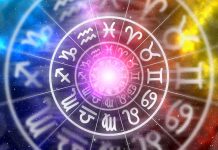
You’re here because you want to learn about astrology.
Fantastic!
You’ve come to the right place.
The funny thing about learning about astrology in this century is that information is everywhere, and while a lot of it is good, there’s also a ton of misinformation that abounds. It is hard to know who to trust, or even where to begin.
When You’re New to Learning Astrology
Astrology is more than funny Sun sign memes on social media. It is more than horoscopes. In fact, horoscopes are a relatively new invention. The first newspaper horoscopes are usually credited to a Brit by the name of R.H. Naylor, who started writing his horoscope column in the 1930s — and launched a worldwide phenomenon.
Astrology itself likely has roots from around the 3rd millennia BCE, with Western Astrology becoming more like it is today around the 2nd century CE (AD), with Ptolomy’s tablets establishing our more modern concept of the signs and houses. The roots of Western Astrology lay in Babylon, Sumeria, Greece, and Mesopotamia. It then traveled to India, where localized changes took place as they took it in a slightly different direction than the Greco-Romans did.
Knowing that there is a long and ancient use of astrology plays an important role in coming to understand how profound it is that astrology has lasted for as long as it has, and how it has become firmly cemented even into the relatively young American and Canadian culture.
Is Astrology a Belief System?
The short answer is no. A common misconception is that astrologers “believe” in astrology. It isn’t a matter of believing in it. Astrology is a philosophy and a language. Would you say that you believe in Confucianism? Or that you believe in English?
No. Certainly not. These are things we may study or practice, but they aren’t belief systems.
Astrology is a study. For some, it is a practice. If someone says they “believe” in it, they probably have not truly studied it beyond the surface stuff that you can find anywhere and everywhere.
Astrology is also only as good as the astrologer interpreting it. Therefore, it is hard to prove scientifically. Each person has a collection of biases that they bring with them, just like in every other study of the human condition. Plus, one could study astrology for their entire lives and still not know everything there is to know about it.
Astrology is more akin to psychology and philosophy than it is to psychiatry and neuroscience, for example. As new planets or asteroids and other bodies are discovered, we learn more about it through careful observation. Think of it from this perspective: as we understand more and more about the human condition, the study of psychology grows and changes, and then interpretation as to what works (or does not) feeds an ever-growing and always changing body of evidence on the human mind.
Astrology uses archetypes to explain the human condition. Archetypes are often linked to various mythologies as a way to understand certain aspects of being human. This is key to understanding astrology, even before learning about the planets, signs and houses.
What Else Do You Need To Know Before Beginning to Learn Astrology?
First and foremost, the planets don’t control you. The signs don’t control you. Nothing about astrology is actually a force, or an influence, or anything causing anything else to happen. Granted, the word “influence” is thrown around in online astrological conversations all the time. Yet, just like “Sun sign cusps,” this is an oversimplification of something more complicated, quite often perpetuated by people who simply don’t know any better.
Astrology is the study of cycles. It is based on the philosophy that all the Universe is connected and moves as one. In 1908, in a book called The Kybalion (possibly by a man named William W. Atkinson), it was written, “As above, so below.”
This was crafted as a newer translation from a text called the Emerald Tablet, which is often credited to Hermes Trismegistus, perhaps from around the 7th-9th century AD.
The philosophy provided in these texts is that we all move as one, that the planets are a reflection of the vibe here on Earth that we encounter with our consciousness, and the vibe here is, in turn, a reflection of the planets. Neither of these are forcing, influencing, or otherwise causing the other to happen. It is just all connected and moving at the same time. Things coincide, rather than relay some force or influence. Astrology, of course, wouldn’t exist without consciousness.
Astrology is, then, reading the language of the planets and their positions and relationships to one another, and then being able to translate that with our piddly, but ever growing, human understanding of that “vibe” (for lack of a better term).
Once you are able to comprehend that, you’ll have a much easier time learning astrology in a way that is more fulfilling and insightful.
Copyright 2024 Astrovibe.com


















